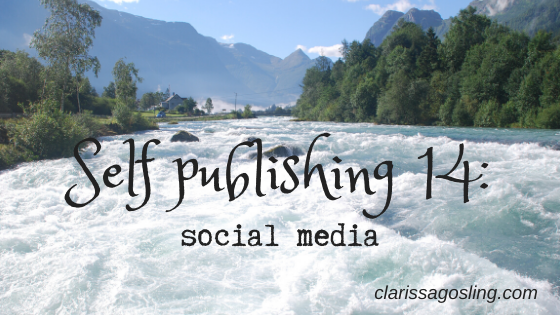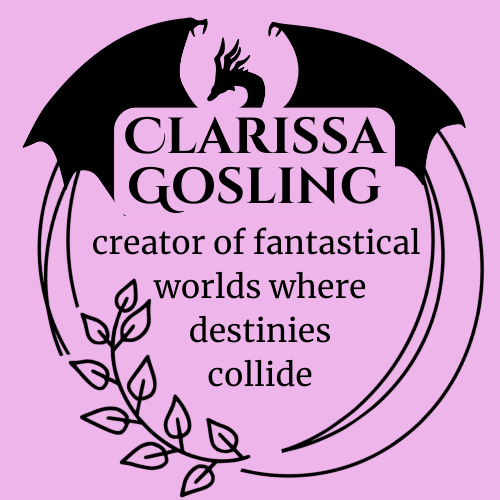
As a self-employed entrepreneur (which is what being a self-published author is) you need to engage with your audience in order to raise their interest in your products. In this case your books. And social media is one way to do that. It is not the only way, and there is certainly no obligation for an author to have a presence on any social media platform.
A benefit of using social media to develop your platform is that these channels are free to use. The downside is that it can take a lot of time to post regularly and to interact with others on there to develop a following. And each platform that you use takes up more and more time.
There are a multitude of different social media platforms, and you do not need to use all of them. Choose which ones appeal to you and where you think your audience is likely to be. Start small and then build up to more as you become more comfortable. It is easy to get overwhelmed with multiple platforms, so think carefully about what your goal is with each. Repeating the same thing through every platform can work, but also think about giving each platform it’s own content as they do ave distinct audiences and ways of use.
Possible social media platforms to use are Instagram, Twitter, Reddit, Facebook, SnapChat, TikTok, YouTube, Tumblr, Weibo, LinkedIn, Pinterest, Medium, Flickr, Quora, numerous blog platforms, and many many others. Facebook, Twitter and Instagram are probably the most well known sites to use as an author, though there is a strong writing presence on Reddit too. The #authortube community on YouTube is growing and Pinterest is increasingly mentioned as a place that authors can use with success. The important thing to decide is which do you want to do. As all of them require time and effort, time and effort that you will be putting into something other than writing your book.
With each social media platform you will need to investigate how the site works, and how users interact with them. On Facebook, for example, you have the ability to create a page for your author business, or a group (or both). Then there are many readers groups and genre groups run by others that you can join. Running your own reader group takes a lot of time and effort on your part, especially if you are doing it on your own. But if you create an engaged group of superfans, then it can be worth that as they then encourage other readers to discover your books and to help build the community. Posting about your books in other groups can come across as very spammy, so before you do this make sure that you are within the rules of the group and how others use the group.
Look at those sites you could use and see how other authors are using them. Think about what you could post and how that would fit into your current work schedule and life rhythm. Start small with one platform and then, if you want to, expand to more.
They all benefit from continuing engagement, by posting regularly and interacting with others on the site. Many of them use hashtags and/or groups so that your content can have a wider reach than just those that follow you. Though most of them use algorithms to show only the most relevant content to others. So your content will never be shown to all of your followers, though the more other people interact with it the more widely it will be shown. The exact details of how all these algorithms work are closely guarded secrets of the different platforms.
Though with all of these the important thing is not just the raw number of followers you have. While it can look impressive to have thousands of followers that is meaningless if you never get any interaction on your posts. The ideal is also to build up followers who are readers, rather than other authors. This can be hard to identify and develop relationships with potential readers without coming over as pushy. Finding that balance is difficult and ever changing.
While most of these tools were developed to share things immediately, there are increasingly tools that allow you to schedule posts in advance. For example, for the #mayfaereads challenge I’m co-hosting on Instagram at the moment I am using Facebook Creator to batch create my posts a few at a time. I took all my photos over a couple of days and have uploaded them into FB Creator and am going through a few days at a time writing the captions. This means that I can organise them in advance to post and have them post at the time I think I will get the most engagement, rather than when I have time to post them. Do remember if you use a post scheduler that you still need to go into the site frequently and interact with your followers and react to those people who have commented on your posts.
For many of these sites it is possible to set your account up as a business account, rather than a personal account, often free of charge. That gives you access to statistics about how engaged your audience is, splitting them into demographics, and being able to judge how well different content has performed. Using this data you can then be smart about what you post and when you post. For example I can see that photos of me generally get a higher interaction with Instagram than other photos. So I plan to keep posting photos of me, though not every one!
And, of course, another benefit of having a business account with these platforms is that you can then run paid advertising. Facebook, Instagram, Twitter, even Pinterest and I’m sure many other of the social media platforms too, allow you to boost posts to reach a greater audience, as well as set up specific adverts to serve to an audience you create. These are very easy to spend money on, and take time to learn how to do well. I am still in the early stages of getting to know some of these platforms and am in no way qualified to give advice. For anyone interested in these then there are plenty of books on the subject, or training courses that can help. As I have no personal experience I am not going to point you in the direction of any as I don’t want to be held responsible for any issues you might have later. At the moment I don’t feel in a place with my publishing career to dive deep into paid advertising, though I have dipped my toe in a little with my expat books. Once I have more books out then I will, no doubt, experiment further.
Whole books can, and have been, written about social media marketing, so this is just the tip of the iceberg. Once you are comfortable with the basic tools from each platform that you are using then you can work out what else you can do. One way to learn how to be successful using a particular social media platform is to follow and analyse what other authors are doing that are more successful than you.

This is a really handy post, thank you for sharing!
You’re welcome!
You are so right about the iceberg. Once you decide which channels you prefer, now you’re challenged with crafting content to fit your brand. I know, I know – that’s another blog post LOL.
It can take over if you’re not careful!